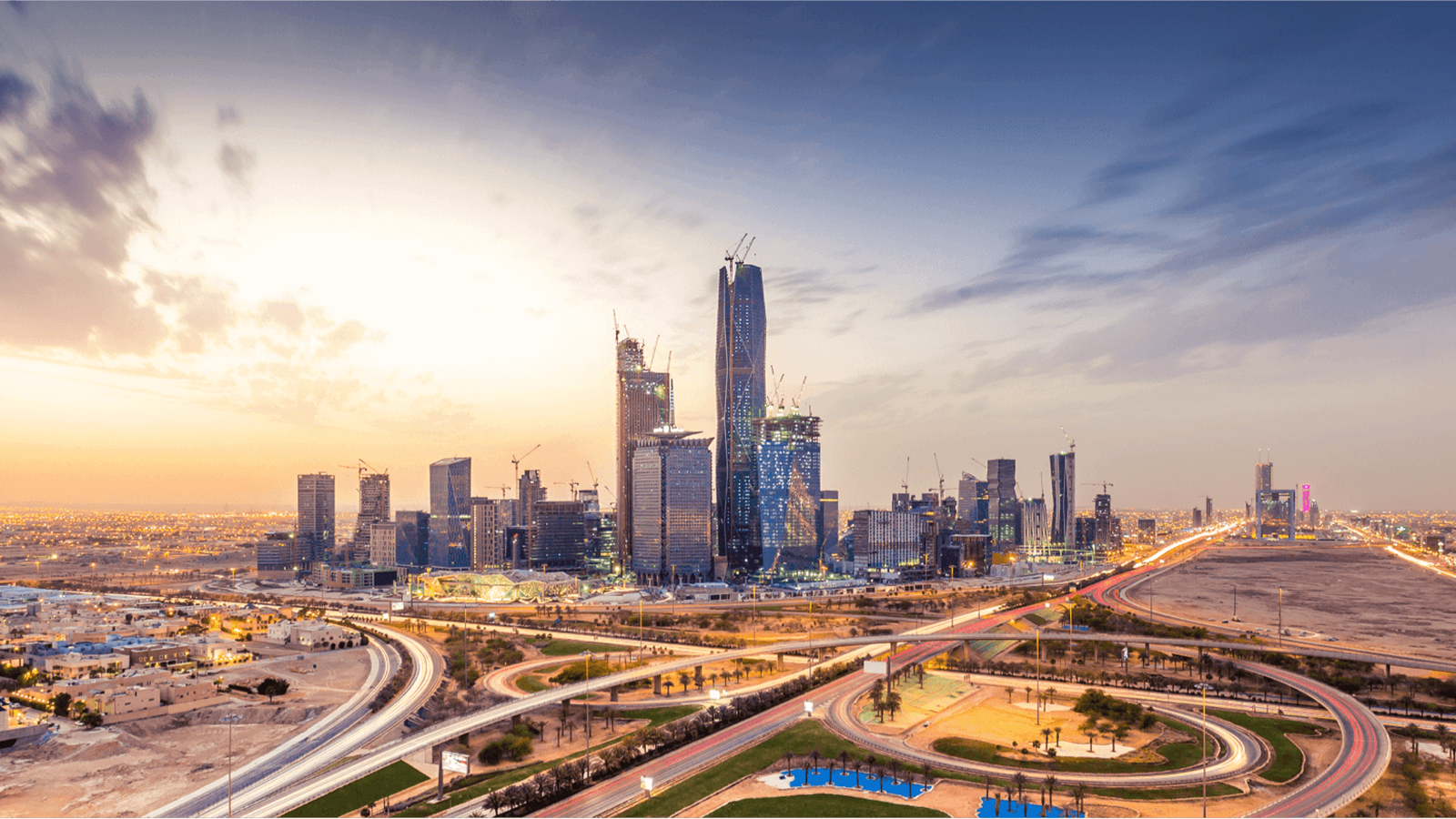
Home » Insights » The impact of Saudi Arabia’s Vision 2030 on expats and their finances
The impact of Saudi Arabia’s Vision 2030 on expats and their finances
Posted on: 15th October 2024 in
Expats
Saudi Arabia’s Vision 2030 is an ambitious plan aimed at transforming the Kingdom’s economy, diversifying away from its reliance on oil, and creating a more sustainable and vibrant future for its citizens and residents. For expatriates, this strategic vision not only influences the job market but also impacts financial planning, investment opportunities, and lifestyle choices. As an expat living in Saudi Arabia, understanding how Vision 2030 affects your finances is crucial for making informed decisions about your career, savings, and investments.
In this blog, we will explore the key aspects of Vision 2030 and what they mean for expatriates’ financial outlook in the Kingdom.
1. Diversification of the Economy: New Opportunities for Expats
One of the primary goals of Vision 2030 is to reduce Saudi Arabia’s dependence on oil by diversifying the economy into sectors such as tourism, entertainment, technology, finance, and renewable energy. This shift presents significant opportunities for expatriates, particularly in emerging industries that are poised for growth.
Key Growth Sectors:
- Tourism and Hospitality: The development of major tourism projects like NEOM and the Red Sea Project aims to attract millions of tourists by 2030. This sector will require a large workforce, creating new jobs for expats in hospitality, construction, and project management.
- Technology and Innovation: With a focus on becoming a hub for tech innovation, the Kingdom is investing heavily in digital infrastructure, AI, and smart city projects. Expats with expertise in technology, engineering, and digital transformation will find increasing demand for their skills.
- Finance and Investment: As Saudi Arabia seeks to attract more foreign investment and develop its financial markets, there are growing opportunities in banking, asset management, and financial advisory services.
What to Do:
- Keep an eye on emerging industries and consider career shifts that align with the sectors being prioritised under Vision 2030.
- Update your skills to stay relevant in a rapidly changing job market, particularly in areas like technology, sustainability, and digital finance.
- Leverage your expat status to explore opportunities in industries that are becoming central to Saudi Arabia’s economic transformation.
2. Job Market Changes and Saudization Policies
As part of Vision 2030, the Saudi government is focused on reducing unemployment among Saudi nationals through a policy known as Saudization (Nitaqat). This policy mandates that a certain percentage of jobs in specific industries be reserved for Saudi citizens. While this initiative is essential for the Kingdom’s long-term economic health, it may lead to fewer job opportunities for expatriates in certain sectors.
Impact of Saudization on Expats:
- Expatriates working in sectors like retail, banking, and healthcare may see increased competition as more jobs are localised for Saudis.
- Senior and specialised roles, particularly in industries such as technology, energy, and engineering, are less likely to be affected by Saudization, meaning there will continue to be demand for highly skilled expatriates.
What to Do:
- Focus on building expertise in fields that are less impacted by Saudization, particularly those that require high levels of specialization.
- If you work in a sector being targeted by Saudization, consider upskilling or transitioning to a role that is less affected by localization policies.
- Network within your industry and stay informed about policy changes to adapt your career strategy accordingly.
3. Investment Opportunities in the Growing Non-Oil Economy
Vision 2030 is driving massive investment in non-oil sectors, providing a range of opportunities for expatriates looking to invest in Saudi Arabia. From real estate to startups and publicly traded companies, the economic diversification plan offers expats exciting avenues to grow their wealth within the Kingdom.
Emerging Investment Areas:
- Real Estate: With the development of megaprojects like NEOM, the Red Sea Project, and Qiddiya, real estate is booming. Expats can invest in property in designated areas, either for personal use or as an investment asset.
- Stocks and Public Markets: Saudi Arabia’s stock market, the Tadawul, has opened up to foreign investors, offering expats the chance to invest in local companies that are poised to benefit from economic growth.
- Entrepreneurship and Startups: The government’s support for small and medium-sized enterprises (SMEs) and tech startups presents an opportunity for expats to launch businesses or invest in early-stage ventures.
What to Do:
- Explore investment opportunities in sectors like real estate, tourism, and technology, which are receiving significant attention and funding under Vision 2030.
- If you’re interested in stocks, research companies on the Tadawul that are positioned to benefit from the Kingdom’s economic transformation.
- For entrepreneurial expats, consider taking advantage of government incentives to start a business or invest in startups within Saudi Arabia.
4. Cost of Living and Financial Planning for Expats
Vision 2030 includes initiatives aimed at improving the quality of life in Saudi Arabia, such as expanding public transportation, developing new entertainment and cultural hubs, and enhancing education and healthcare services. While these improvements are beneficial, they may also lead to an increase in the cost of living for expatriates, particularly in major cities like Riyadh and Jeddah.
Factors Impacting the Cost of Living:
- Housing Costs: As new developments spring up and demand increases, property prices and rental costs in prime areas may rise.
- Lifestyle Expenses: With the introduction of more entertainment options, restaurants, and cultural activities, expats may find themselves spending more on leisure.
- Education and Healthcare: While the government is improving public services, expatriates often rely on private schools and healthcare, which can be costly.
What to Do:
- Plan for potential increases in the cost of living, especially if you’re based in one of the rapidly developing urban centers.
- Review your financial goals and adjust your budget to account for lifestyle changes as Vision 2030 projects come to fruition.
- Consider setting aside more savings or investments to ensure long-term financial stability, particularly if your job prospects or cost of living changes.
5. Long-Term Residency and Financial Security
Vision 2030 includes reforms that make it easier for expatriates to invest in the Kingdom and secure long-term residency. The Premium Residency (Green Card) program allows certain expats to live in Saudi Arabia without a sponsor, providing greater financial security and flexibility.
Benefits of Premium Residency:
- The ability to own property and invest freely in Saudi Arabia.
- Access to long-term residency, which can make it easier to plan financially for the future, whether you plan to stay in the Kingdom or move elsewhere.
- Flexibility in employment and the ability to sponsor family members.
What to Do:
- If you’re planning to stay in Saudi Arabia long term, explore the Premium Residency program and its benefits for financial and personal security.
- Consider how long-term residency could affect your retirement and investment plans, and whether you want to build more permanent financial roots in the Kingdom.
- Work with a financial advisor to understand the tax and legal implications of securing long-term residency as an expat.
Conclusion
Saudi Arabia’s Vision 2030 is reshaping the economic landscape, bringing both opportunities and challenges for expatriates living and working in the Kingdom. From job market shifts to new investment avenues, expats need to stay informed and adapt their financial strategies to take full advantage of the changes ahead. By understanding how Vision 2030 impacts sectors such as employment, real estate, and investments, expats can better plan for their financial future, whether they aim to remain in Saudi Arabia or move elsewhere.
If you’re an expat looking to navigate the financial complexities of Vision 2030, Holborn Assets can help you create a tailored wealth management and financial plan. Contact us today to explore how you can secure your financial future in this rapidly evolving environment.




